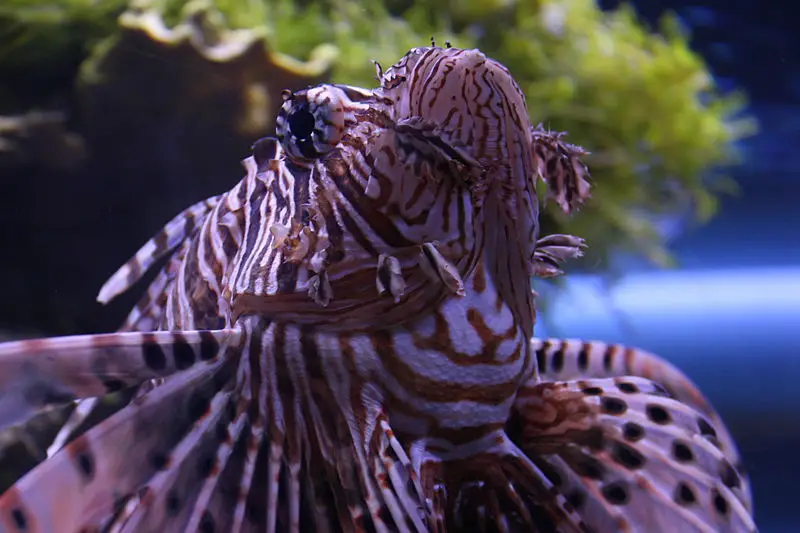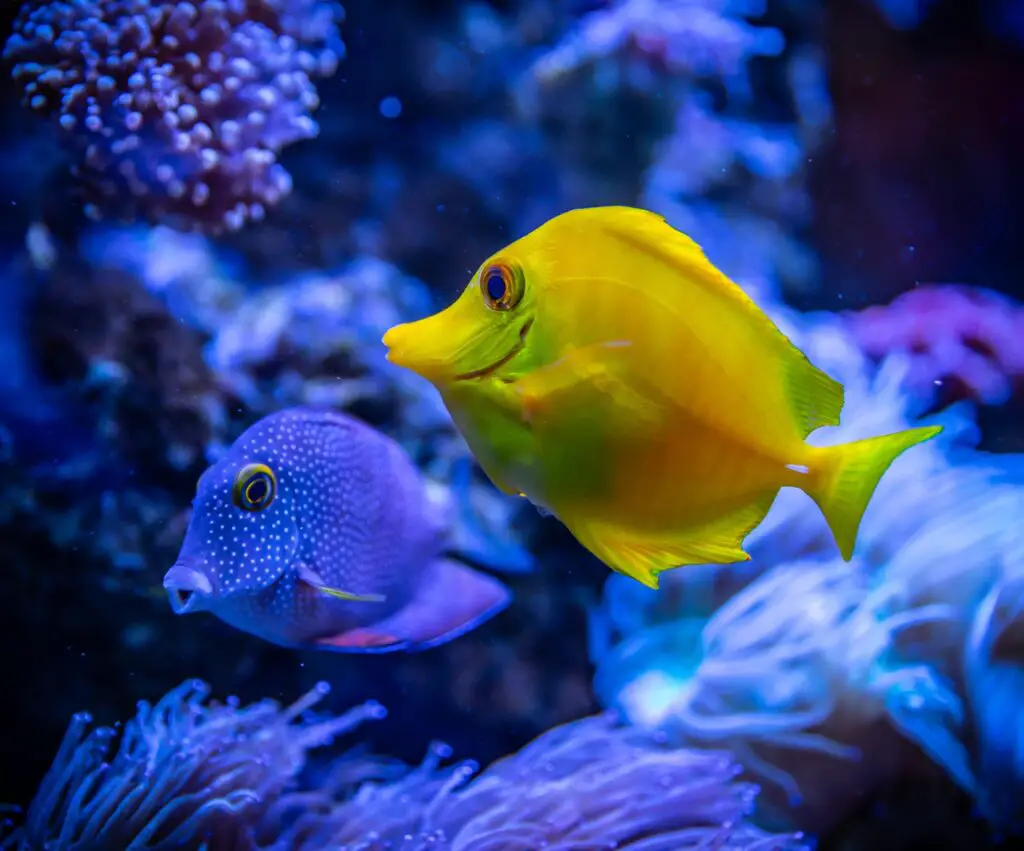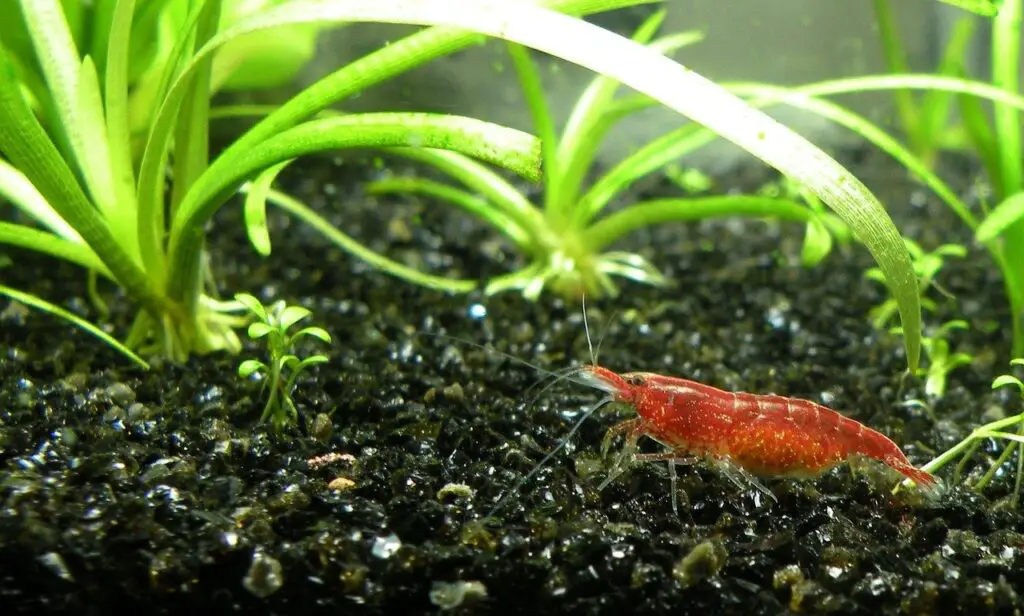Fish are fascinating creatures that have evolved with some remarkable adaptations to their environments. One of the most remarkable parts of a fish’s anatomy is the gills. We all know fish can breathe underwater, but why can’t fish breathe air?
Fish can’t breathe air because they do not have lungs. Gills collapse when there isn’t enough surface area for diffusion, whereby oxygen is concentrated in the water and diffuses into the gills. As such, a fish trying to breathe in the air would suffocate.
The anatomy of a fish is fascinating, and the gills are a remarkable organ, but it has its limitations. Breathing out of the water just isn’t something most fish can do. The rest of this article will discuss why fish can’t breathe air and how gills work.
Do Fish Breathe Air or Water?
Fish are, by definition, breathing the oxygen in the water. The water is made up of molecules containing one oxygen and two hydrogen atoms connected by covalent bonds.
Fish breathe oxygen from the water for the purpose of aerobic respiration. Gills are, quite simple, sheets of tissue lining the head and of the fish that allow diffusion to take place.
How Do Gills Work?
Gills are responsible for aerobic respiration through the process of diffusion. As water passes over the gills, the oxygen is absorbed in the bloodstream to be used by the fish’s body.
Fish are capable of adjusting how much water passes their gills by closing their mouth or gill cover. This reduces the amount of oxygen diffused through the gills.
Made up of countless capillaries, the gills allow oxygen to diffuse into the bloodstream and can cycle oxygen-rich and oxygen-poor blood as well.
Diffusion is simply a process by which molecules tend to move from areas of high concentration to low concentration as a result of random collisions. The speed of diffusion is affected by the size of the molecule, the density of molecules, and the temperature of the environment.
In this example, the water in the fish’s environment is highly concentrated, causing the water molecules to collide with one another and move in all directions. As a result, they find their way into the gills, where they are diffused into the blood stream for the purpose of oxygenating the blood cells.
Ideally, dissolved oxygen should range from 5-8 parts per million so that the fish have an oxygen-rich environment to draw from.
Do Fish Have Lungs?
Fish do not have lungs, and it cannot even be said that gills function similarly to lungs. Yes, fish do appear to breathe in and out, but in actuality, they are adjusting the amount of water that flows over their gills by opening their mouth and gill cover wider.
You can think of it as a similar function to taking a deep breath, but the process isn’t similar. Lungs are another organ responsible for aerobic respiration and intakes oxygen while carbon dioxide, a waste gas, is expelled.
This process of gas exchange is crucial to all air-breathing species. When you breathe in, oxygen enters the lungs, and the lungs expand. The alveoli in the lungs send oxygen into the bloodstream, which is carried to the heart and transported to the rest of the body.
In the gills, a similar process occurs, whereby the gills are responsible for oxygenating the blood and then transporting it to the rest of the body.
Why Can’t Fish Breathe on Land If They Breathe Oxygen?
Fish can’t breathe on land because they don’t have a suitable organ for it. Lungs are designed to function in oxygen environments and do not rely on diffusion. In contrast, fish gills take advantage of the natural process of diffusion to intake enough oxygen.
Gills are also very delicate organs that rely on water to stay supported. On land, the gill arches of a fish collapse as the water rushes out, causing the delicate internal structures to collapse since the air cannot support the weight.
With much less surface area, the gills can’t extract oxygen well at all and will suffocate on land. It’s not that they can’t extract oxygen from the air; they can certainly do that. The issue is that, despite the much higher concentration of oxygen on land, the gills simply cannot extract enough oxygen with collapsed gills.
Some fish can actually breathe air directly using a special labyrinth organ, such as the Betta fish. The organ can extract oxygen from both the air and the water. This organ contains lots of little plates with blood vessels that absorb oxygen from inhaled air. This air is then absorbed into the bloodstream.
Do Fish Breathe Out Carbon Dioxide?
Much like humans, fish need to expel carbon dioxide as a waste gas. The gills intake oxygen and expel carbon dioxide into the water, preventing the buildup of dangerous gasses.
Why Can Fish Breathe Underwater but Humans Can’t?
If you’re putting the chemical puzzle together, then you might be wondering why, if water has oxygen in it, humans aren’t able to breathe it.
First, it’s important to note that the chemical composition of something is a lot more important than you might realize. Just because a compound has oxygen in it doesn’t mean it will behave anything like the regular old O2 we know and love.
In short, humans aren’t able to breathe underwater because our lungs are not capable of absorbing enough oxygen from the water.
In fact, the oxygen in the water is useless to our lungs for breathing when it is bound to our lungs in the form of water. And, most obviously, the liquid blocks any air from getting into the lungs.
Final Thoughts
There are a number of reasons why fish can’t breathe air, but the most important takeaway is that fish aren’t actively breathing at all. The process of aerobic respiration occurs thanks to the diffusion of water through the gills and into the bloods. In the air, the gills collapse, and the fish cannot absorb enough oxygen.



